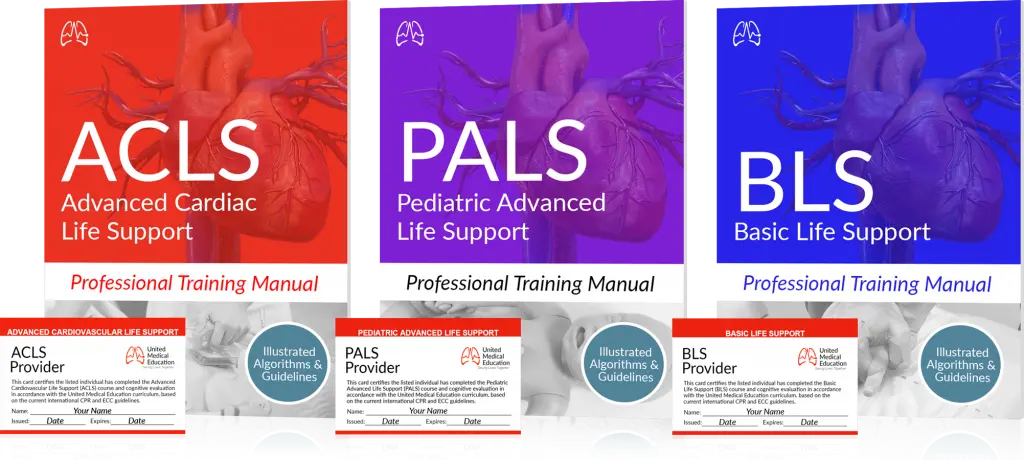
Katrina Nillas
Katrina Nillas is a Registered Nurse and Professional Writer. She has built a career creating educational materials for both patients and healthcare professionals.
The heart plays a central role in our circulatory system, and if damaged, other vital organs in our body will also suffer. While some organs can even be removed without severe consequence, our heart helps feed all other organs with essential nutrients and oxygen.
According to one research study in 2017, heart disease accounts for nearly one-third of deaths nationwide. Although there is no specific cause, one contributing risk factor for heart disease is an unhealthy diet.
Therefore, being cautious of what you feed your body is one of the most crucial preventive measures you can take to preserve your heart’s condition.
This article will help us understand how specific foods can affect our heart health and avoid those that will contribute to its deterioration.
What are the characteristics of heart disease?
Heart disease comes in many forms, but each shares similar characteristics that lead to the deterioration of how our bodies function.
For example, heart disease that results from the hardening and narrowing of the arteries that supply blood to the body is called atherosclerosis.
The hardening and narrowing are usually caused by fatty deposits that build up on the inside of the arterial walls, limiting the oxygen-rich blood to reach your organs. This plaque can wreak havoc and lead to severe problems like a stroke or heart attack.
With the rapid changes of today’s lifestyle, some risk factors are dominating. Fortunately, heart disease is controllable and manageable.
What are the risk factors of acquiring heart disease?
The risk factors of acquiring heart disease are divided into two categories: those you can control and those you can’t control. The risk factors that you can control include your lifestyle, diet, smoking status, emotional status, physical activity, cholesterol level, and fat intake. On the other hand, risk factors that you cannot control include age, gender, genetics, and ethnicity.
If you consider it closely, most controllable risk factors can be linked to each other (e.g., diet and cholesterol level). This relationship between the controllable risk factors leads one to conclude that maintaining a heart-healthy diet is crucial in managing and maintaining your heart health.
What foods are suitable for the heart?
1. Green Leafy Vegetables
When we were children, our parents always told us to eat green leafy vegetables because they believed they would help us grow up strong. As we grow older, we realize just how true that statement is.
Green, leafy vegetables like lettuce, kale, silverbeet, and spinach are full of vitamins and antioxidants. They are also rich in Vitamin K, which promotes proper blood clotting. One analysis of studies also revealed the significance of green leafy vegetables in reducing the incidence of heart diseases by as much as 16%.
Also, green, leafy vegetables contain converted nitric oxide products with vasodilating and tissue-protective properties, lowering the risk of certain heart diseases. So, incorporating green, leafy vegetables in our diet plays a crucial role in boosting our overall health.
2. Dark Chocolates
Dark chocolates are not only famous for their distinct taste that triggers the body to release endorphins. They are, in fact, good for the heart. Why? Because dark chocolates are rich in flavonoids. Flavonoids have beneficial anti-inflammatory effects, which help protect our cells from oxidative stress and possible diseases.
One particular study conducted in 2011 showed an impressive result associating the consumption of dark chocolates with a 32% lower risk of calcified plaques in the arteries. In addition, dark chocolate induces coronary vasodilation and improves coronary vascular function 2 hours after consumption.
However, these studies only show the beneficial effects of dark chocolates and do not eliminate the harmful ones, so consumption must still be in moderation. It would also be best to choose dark chocolates with at least 70% cocoa content to guarantee excellent quality. Remember, the higher the cocoa content, the higher the fiber and protein too.
3. Blueberries
Eating blueberries every day reduces the risk of heart diseases. This statement is true because blueberries are rich in antioxidants that reduce oxidative stress in the body.
According to recent research led by the University of East Anglia, consuming approximately 150 grams of blueberries reduces heart diseases by 15%. In addition, daily consumption of blueberries also helped control blood pressure and clotting.
Blueberries are excellent as low-calorie desserts and can be incorporated in different meal preparations so they are very healthy and convenient at the same time.
4. Fatty Fish
Fatty fish like mackerel, salmon, herring, and tuna are rich in omega-3 fatty acids, which researchers found was associated with a lower risk of heart diseases. Consuming these omega-3 fatty acids through fish intake controls blood pressure and helps produce a modest cardiovascular benefit, as several studies showed. They also significantly contribute to keeping the arteries smooth and free from damage.
Researchers also concluded that fish oil has a protective effect on cardiovascular function during mental stress, taking us closer to understanding the complete mechanism of how omega-3 fatty acids work.
In a more recent advisory, the the average person should consider a weekly intake of at least two servings of fish. For alternatives, you may check out algal oil and krill oil.
5. Legumes
Legumes such as beans, chickpeas, and lentils are not only famous for their specific texture when transformed into soups and dips. Legumes also boost heart health. They are high in fiber, B-vitamins, and minerals.
One study concluded that 190 grams per day contributed to a low-GI diet and reduced the risk of heart diseases. This conclusion has brought positive changes for people struggling to maintain their heart condition and those diagnosed with Diabetes Mellitus Type 2.
Legumes also contain phytochemicals that provide health benefits such as protecting against coronary heart disease, high blood pressure, and diabetes.
Avoid these foods for a healthier heart:
1. Processed and Cured Meats
Foods that contain high saturated fats are not entirely bad for the heart. Still, when you consume them in more significant amounts than recommended, then you are placing your health in a very vulnerable situation.
Processed and cured meats are very high in saturated fats, preservatives, and sodium (salt). A maximum of six thin slices of these meats contains half of the daily recommended dietary sodium. We all know that elevated sodium levels in the body raise blood pressure and predisposes us to heart disease, stroke, and even significant loss of life.
By reducing saturated fats in the diet, there will be a modest reduction in Coronary Heart Disease. It would also be best to limit the consumption of Deli meat in acceptable quantities.
2. Soft Drinks and Other Sugar-Sweetened Beverages
Most Americans get their sugar boost from soft drinks, sugar-sweetened juices, and other beverages than from their food. According to the Centers for Disease Control and Prevention, almost two-thirds of American youth consumed at least one sugar-sweetened beverage on a given day.
The effect of high sugar consumption is more detrimental to overall health than overconsumption of saturated fat. Researchers found that overconsumption of added fructose (a type of sugar) increases the risk of obesity, concluding that sugar plays a more significant role in developing heart disease.
This overconsumption of sugar leads to the pathological pathways of developing heart diseases by elevating the body’s blood pressure and increasing chronic inflammation. The bittersweet reputation of sugar in heart health is a subject of many debates, and most of them always have negative impacts.
3. Baked Goods
Baked goods can be highly deceiving, especially with the way they smell and taste. But, you must remember that underneath all the baked goods are hidden high amounts of trans fats, which can be detrimental to the heart. The butter and margarine are mostly the culprits.
One study published in the New England Journal of Medicine found a significant correlation between foods containing trans fats and the risk of heart disease.
4. Condiments
It would be best to consume condiments in limits because they contain high sodium (salt). The amount of sodium in these condiments can increase blood pressure and may worsen heart failure symptoms.
The relationship between high sodium intake and risks of heart diseases was revealed in several studies that led The American Heart Association to advise people about choosing foods with less sodium and preparing food with little or no salt.
In 2010, excessive sodium consumption caused 2.3 million heart-related deaths worldwide.
-
Fried Foods
Eating deep-fried foods poses a high risk of developing major heart disease, including stroke.
A study published online in the journal Heart concluded that fried food intake is linked to the heightened risk of heart diseases. The results also showed that frying boosts the chemical by-products produced by the body when inflammation occurs.
For a healthier alternative, you may choose to grill or bake your foods instead.
6. Alcohol
Contrary to popular belief, alcohol will not do good for the heart, especially when taken in larger quantities.
According to new research published in Annals of Internal Medicine, a single dose of wine can immediately and significantly raise a drinker’s risk for atrial fibrillation, the most common heart arrhythmia. Atrial Fibrillation can lead to stroke, or even death.
The more alcohol you consume, the higher your risk for atrial fibrillation will be. So, debunk that old belief and go for what is best for your health.
Five Helpful Tips for a Heart-Healthy Diet
- Create a daily menu and plan ahead.
- Control your portion size.
- Allow yourself to indulge in occasional treats.
- Increase fiber in your diet.
- Use low-fat substitutes for foods that you cannot completely restrict from your diet.
What other heart-healthy tips can we practice?
Preserving your heart is not only limited to following a heart-healthy diet. There are several heart-healthy tips that you can practice, and these things must start within yourself. You need both patience and discipline to keep your heart at its maximum level of functioning.
Some of these heart-healthy tips include:
-
Avoid Cigarette Smoke
If you are a smoker, you must bid farewell to every cigarette stick that has ever touched your lips. There must be no ifs or buts. While if you are a nonsmoker, you must not expose yourself to secondhand smoke. Smoking is one of the top controllable risk factors for heart disease since the chemicals emitted from cigarette smoke promote plaque buildup. The American Heart Association has made it clear that you should stop smoking before giving it the power to compromise and consume your health and those around you.
-
Get Tested Regularly
Having regular checkups and monitoring is one effective way to be aware of what is happening inside your body. Unfortunately, some people tend to forget the importance of self-awareness, so most heart diseases are only discovered when symptoms start to show. Healthcare costs can be demanding, but it is always better to catch any possible diseases early.
-
Have Regular Sex
What happens under the sheets is included in our Physiological Needs according to Abraham Maslow’s Hierarchy of Needs. Sexual activity is more than just pleasure; it is also an excellent form of exercise that aids in the proper circulation of blood, which helps in lowering blood pressure and the risk of heart diseases.
-
Laugh It Out
Being in a good mood is good for the heart. Even laughing can lower stress hormones and decrease inflammation in the arteries, resulting in elevated high-density lipoprotein (good cholesterol) in the body. With this being said, always give yourself the time to laugh at things and enjoy the mood. We must give the same importance to our mental health the way we treat our physical health.
Takeaway
Heart-healthy eating is crucial in preventing the risk of heart disease and stroke. When you pair it with regular exercise, physical activity, and other heart-healthy tips, you can go a long way with a well-functioning heart. To get the most benefit for your heart, you should invest in eating more of the foods we mentioned above and avoiding those that predispose your heart to a bad condition.
It would also be best for you to control your portion size and allow yourself an occasional treat. Indulging in your favorite food once in a while will not cause severe consequences. Completely restricting yourself from the pleasures of life is also unhealthy.
More importantly, do not forget to pause or rest when things get overwhelming. Lack of rest and sleep can also disrupt underlying health conditions and biological processes, including inflammation and blood pressure.





